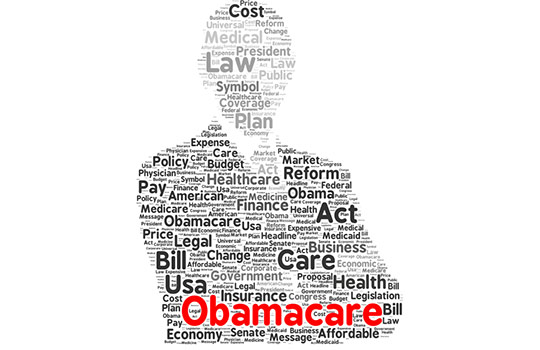Since its inception, nearly every member of the Republican Party has run vowing to repeal the Affordable Care Act. Ashish Jha looks at what might happen next.
 These have been tumultuous years for the US healthcare system. In 2010, Barack Obama signed into legislation his most ambitious social policy intervention—the Affordable Care Act (ACA), which had as its most prominent goal to get the US closer to universal coverage. Through expanding Medicaid for the poor to building health insurance exchanges with strong federal subsidies, the ACA has whittled away at the number of uninsured. By latest estimates, 20 million Americans gained insurance due to the ACA.
These have been tumultuous years for the US healthcare system. In 2010, Barack Obama signed into legislation his most ambitious social policy intervention—the Affordable Care Act (ACA), which had as its most prominent goal to get the US closer to universal coverage. Through expanding Medicaid for the poor to building health insurance exchanges with strong federal subsidies, the ACA has whittled away at the number of uninsured. By latest estimates, 20 million Americans gained insurance due to the ACA.
But unlike most social policy interventions, the ACA was passed along partisan lines. Not a single Republican voted for the bill. This meant that the Republicans could immediately start campaigning against it. And they did. Since its inception, nearly every member of the Republican Party, from local officials to the Presidential candidate, has run vowing to repeal the ACA. With President Obama in the White House, no such opportunity availed itself. But now, with both Congress and the Presidency in Republican hands, repeal seems to be inevitable.
But Republicans are now struggling with where to go next—do they “Repeal and Delay” or “Repeal and Replace?” The delay option is as follows: pass a bill now that would not kick in until 2019, using the intervening two years to craft a replacement solution. The potential political benefits of this delay are two-fold: (1) delayed implementation until after the next congressional election in 2018 would allow Republicans to avoid facing voters who might lose health insurance and (2) allow time for crafting a replacement plan. While this approach seems reasonable on paper, it has substantial risks. First, Democrats could refuse to help draw up the replacement plan, letting the Republicans suffer the consequences of stripping millions of Americans of their health insurance. Second, repeal and delay creates substantial uncertainty for insurance companies participating in the health insurance exchanges. If there is a repeal without certainty of what happens next, many companies are likely to drop out, making exchanges unsustainable and causing rapid loss of insurance options for millions of Americans. From a policy point of view, there is little doubt that repeal and delay will do more harm than good, and several Republicans have publicly expressed reluctance with this approach.
The alternative is “Repeal and Replace.” The notion is to repeal the ACA and simultaneously pass legislation that would give all uninsured Americans an alternative approach to gain coverage back. Although this approach would be smarter from a policy perspective, there are problems with this approach as well. The first is that Republicans would almost surely need Democratic votes for “Repeal and Replace,” and Democrats are in no mood to support Republican efforts to repeal the ACA. The second is that there is no consensus among the Republican policymakers of what a replacement plan should look like. And this is the biggest problem.
Any replacement that covers a large proportion of those covered by the ACA—especially the substantial proportion of people with chronic illnesses and pre-existing conditions—will be expensive. The ACA coaxed healthy people into insurance pools, allowing the healthy to cross subsidize the sick. If the Republicans dismantle the ACA so that the healthy no longer subsidize the sick, Republicans will have to find new resources to cover these expensive individuals. And this mean higher taxes or other sources of revenue. Most Republicans will struggle to support such a plan.
So what is likely to happen? There is a lot of uncertainty, but here is a guess. Republicans will repeal the ACA and then pass legislation that provides modest tax credits to purchase insurance. These credits will likely be enough to help healthy people obtain health insurance. Without protections similar to those in the ACA or an alternative approach, the chronically ill, especially the poor who are chronically ill, will struggle to obtain adequate coverage. So here’s the bottom line: unless the Republicans are willing to fund a more generous program, they will find themselves choosing between foregoing their promise to repeal the ACA or bearing the responsibility for leaving the poor and the chronically ill uncovered in the most expensive health care system in the world.
Ashish K. Jha is the K. T. Li Professor of Health Policy at the Harvard T.H. Chan School of Public Health, Professor of Medicine at Harvard Medical School, and Director of the Harvard Global Health Institute. He practices Internal Medicine at the V.A. Boston Healthcare System. His major research interests lie in improving healthcare delivery systems, both in the US and globally and how to use policies, data, and technology to make care safer, more effective, and more efficient.
